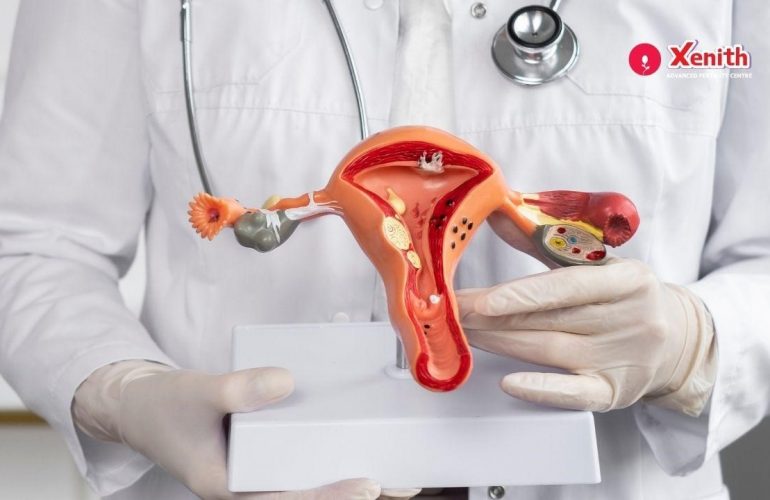Currently, infertility has become a global epidemic. WHO defines infertility as a “disease of the male or female reproductive system defined by the failure to achieve a pregnancy after 12 months or more of regular unprotected sexual intercourse”. (1)
When you are struggling with infertility, it might cause you to go through a series of emotions like shame, grief, anger to name just a few. Why is it that your friend who is younger than you already has 3 kids and you don’t have even one or how is it that your friend who conceived immediately after planning a pregnancy and you are struggling still to have a child? It’s so awkward to answer questions about why you still haven’t had kids. These types of questions run through the minds of many women struggling with infertility. The stigma of being a “failure” placed by society on infertility and being childless could take an emotional toll on the couple and women usually take the brunt of the blame.
However, motherhood can come in all different forms. With the new advances in technology, women who had slim to no chances of becoming a mother due to infertility or other issues are given the precious gift of bearing a child of their own. The various paths to parenthood are much more diverse now than ever before.
Gone are the days when the only way to have a child is through having sexual relations and you are the child’s birth and biological mother. Infertility in females could be due to problems in the egg, ovaries, uterus, fallopian tube, hormonal imbalances or various other reasons. Technology has allowed women to overcome some of these hurdles through medications, assisted reproductive technologies (ART), surgery for certain medical issues or various other ways in order to give them the opportunity to conceive and give birth to a child successfully.
Intrauterine insemination (IUI) is a procedure where the sperm is washed and concentrated and then transferred to the woman’s uterus at the time she is ovulating and releasing an egg. This procedure is used when the sperm is below the normal quantity, quality or motility or if you need to use donor sperm or if you are allergic to the semen which contains the sperm or if you need to bypass the woman’s cervix due to problems with the cervical mucus or other issues.
Invitro fertilization (IVF) is a procedure where a woman is stimulated to produce many eggs at one time and these eggs are retrieved from her ovaries. The eggs are then fertilized with sperm in a laboratory setting and the fertilized egg is transferred back into the woman’s uterus for possible implantation in the uterus and successful conception. This procedure is used when IUI hasn’t worked, older age, certain health conditions like endometriosis, fibroids, cancer, genetic disorder or other conditions. Sometimes, the woman is not able to produce a viable egg and might have to use a donor egg so that she could still give birth to a child that is not hers biologically.
Sometimes, the woman is not able to carry a pregnancy to term, due to medical reasons or maybe they do not wish to become pregnant themselves. In such instances, they will make a legal agreement with another woman (surrogate) to become pregnant with the couple’s embryo. This surrogate will then become pregnant, carry the baby to term, give birth to the couple’s child and hand over the child to the biological parents. So, the mother is not the birth mother but the biological mother. The biological mother is the woman from whom the baby inherits half the genetic DNA and the birth mother is the one who gives birth to the baby and not necessarily the genetic mother.
It seems like such a joyous occasion when someone first tells everyone that they are going to have a baby. Yet behind the scenes no one mentions the emotional scars from the bleak situation of trying to conceive month after month or the miscarriages or the various IVF failures and having to endure all the poking and prodding of IVF treatment. The challenges faced due to infertility could be difficult to share even with family and close friends and it is often suffered in silence. The silence could also be due to the impact on their careers if their bosses find out. Fertility treatments could be lengthy with numerous unpredictable appointments making it difficult to take time off work and could cause a lot of stress. This stress could also take a toll on the couple’s relationship. The medications could also cause various side effects as well. This could all lead to burnout and depression which in turn could decrease fertility and the chances of conception. Women might thus put their career on hold to pursue having a child. So, the workplace culture needs to change their outlook on employees struggling with infertility and what this entails in order to retain their highly skilled employees and create a happy workplace. The topic of infertility needs to be recognized as something normal that many people struggle with and shouldn’t be a taboo topic creating a supporting environment for women in the workplace and in society in general. Maybe workplace policies could cover time off for fertility treatments, counselling, educate employees on how to support coworkers dealing with infertility or accommodate for a decreased workload in order to create a less stressful environment in the workplace. So, when you do finally have a child after many struggles and failures, you need to savour motherhood. Motherhood in its diverse forms needs to be celebrated. Here at Xenith Advanced Fertility Centre, we celebrate the diversity of motherhood and foster a welcoming environment for all patients. Come talk to us freely about your concerns so that you can successfully achieve your goal of having children.




